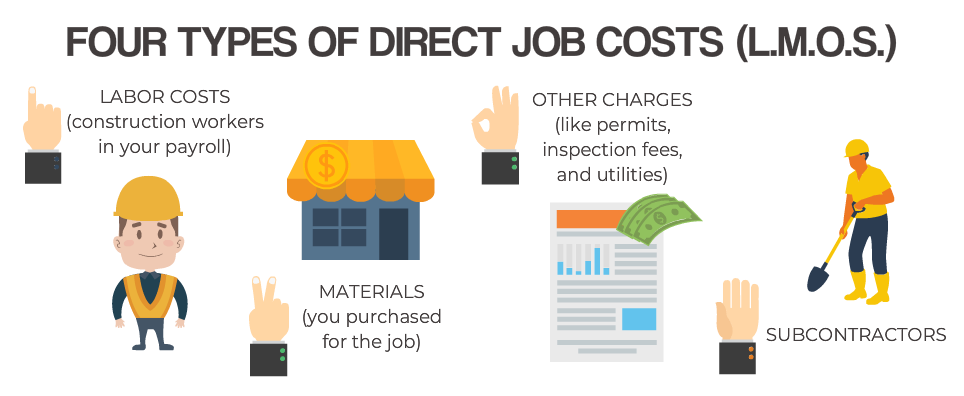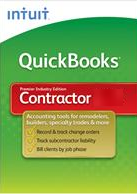How To Build A Construction Company That Can Grow Without You
Posted by Randal DeHart on Fri, Jun 28, 2019
Topics: Payment Collect, Contractor, Contractor Tips, finance, Contractor Operating Tips
What Every Contractor Needs To Know About Profit And Growth Coaching
Posted by Randal DeHart on Fri, Jun 21, 2019
Topics: Payment Collect, Contractor, Contractor Tips, finance, Contractor Operating Tips
The one burning question contractors want to know: When is it income?
When money comes into the business, at some point it turns into income. " Money goes in and out of my business and I don't understand when it is income and when it is not ". Without proper tracking and matching of income and expenses, most construction companies never know if they made a profit until the job is over.
Read MoreTopics: Payment Collect, Contractor, Contractor Tips, finance, Contractor Operating Tips
How To Relieve Your Construction Company From Going Bankrupt
Posted by Randal DeHart on Tue, Jun 04, 2019
Are you getting resumes and applications from bookkeepers who worked for a construction company that went bankrupt and now they are so desperate for a job, so they offer to work for minimum wage or less? What they are not saying in some cases is"And everything I can embezzle, steal and sell online."
There could be a pattern, and it is may be evident that you could be missing it.
Read MoreTopics: Payment Collect, Contractor, Contractor Tips, finance, Contractor Operating Tips
Five Basic Construction Accounting Tasks To Complete Every Month
Posted by Randal DeHart on Fri, May 31, 2019
Proper construction accounting is all about the details. The answers you need to operate and grow your company are in reports. Everything starts with cash because "cash is fact, profit is an opinion." All transactions in the bank account of your construction accounting system no matter if it is QuickBooks or Xero, must be assigned to the proper accounts:
- Income
- Job Deposits
- Payroll
- Taxes
- Cost of Goods Sold (Direct and Indirect Costs including Labor, Material, Other and Subcontractors)
- Other costs including permits, plans, bills from suppliers, and purchases on your personal credit cards
- Overhead
These tasks form the solid foundation of your small business. As a small business owner, you have more important things to do than to keep your own books. We take care of your books for you, so you can get back to the job of running your business and generating profits.
Read More
Topics: Construction Cash Flow, Increase Profits, Increase Cash Flow, Contractor Sucess, Contractor Tips, Contractor Operating Tips
Construction companies need short-term liquid working capital such as cash, lines of credits, loans, owner financing, credit cards, supplier accounts, and other forms of money to conduct daily operations. Small construction companies with annual sales volume less than $10,000,000 and other requirements enjoy some benefits that are not always available to larger firms. Likewise, larger firms can leverage economies of scale.
The larger your construction business grows, the more likely you could end up operating as a bank without the hundreds of ways to generate revenues from fee income and interest calculation that banks use. The most popular method designed by investors and developers and shrewd business people who understand the concept of divide and conquer is for contractors to get little or no down payment for a construction project, do all the work, including change orders and then try to collect their money.
What often happens is that contractors hate paperwork preferring to keep everything in their head. Then when it comes the time to collect their money, they find themselves having to re-sell the job and talk their customer into parting with their money. It's been said: "The value of services rapidly diminish after the services have been performed," which is why highly profitable companies like McDonald's gets your money before they deliver your meal. Compare the success and profitability of a McDonald's franchise to most restaurants.
Read More
Topics: Construction Cash Flow, Increase Profits, Increase Cash Flow, Contractor Sucess, Contractor Tips, Contractor Operating Tips
Cost Variables To Help You Choose A Construction Accounting Software
Posted by Randal DeHart on Tue, May 21, 2019
Many contractors with expensive high-end construction software are re-examining if QuickBooks for Contractors is all they really need and if switching over to it makes sense.
The first thing we ask is which of The Four Types of Contractors best describes your company?
Having used several high-end construction software programs costing over $60,000 and a few low-cost programs under $500 like QuickBooks and Peachtree, and some of the free online bookkeeping programs; I have arrived at the conclusion that for contractors with annual sales volume under $5,000,000 the only answer is QuickBooks For Contractors. For an in-depth comparison of QuickBooks versions, click here.
We started using QuickBooks when it was first released in DOS version in the early 1990s and had been raving fans of it ever since. It's had problems and growing pains; however, Intuit, the parent company of QuickBooks, is good about finding and fixing the issues as evidenced by the number of contractors using it compared to their competitors.
Read More
Topics: QuickBooks Construction Accounting, Contractor Sucess, Contractor Tips, Contractor Operating Tips
Proven Tax Reducing Opportunities For Your Construction Company
Posted by Randal DeHart on Fri, May 10, 2019
Accounting has two sides:
Internal Accounting (Management Accounting) - for making money. Its purpose is to help you operate and grow your business profitability.
External Accounting (Tax Accounting) - for paying taxes. Its purpose is to prepare tax forms, report your income, and make sure you pay your fair share of taxes.
Understanding the difference will impact your company's financial health and wealth. Both groups of accountants must know the relationship between your internal bookkeeping and the Internal Revenue Service, and the importance of paying the right amount of taxes. There are a lot of professional bookkeepers, accountants, and tax preparers and they all serve a different role in your business.
Read More
Topics: Contractor Sucess, Contractor Tips, Contractor Operating Tips, Construction Productivity
Construction Company Technology Practices To Reduce Financial Management Cost
Posted by Randal DeHart on Fri, May 03, 2019
There is a thread of success weaved into the fabric of the most successful, wealthiest, consistently most profitable house builders, general contractors, residential remodel contractors, flipper house contractors, commercial tenant improvement contractors, sub-contractors, specialty contractors, handyman, architects and designers and over 100 other types of contractors and construction-related companies - they adapt to a continually changing environment.
Everything in the Universe is in balance, and parts of it are easy to see and understand and some parts are hidden in plain sight and require some effort to see and understand. Your ability to look beyond the initial statement and understand the hidden meaning why successful contractors adapt to change to survive and thrive will serve you well. The truth is the most successful, wealthy, highly profitable construction contractors don't like change.
Read MoreTopics: Contractor Sucess, Contractor Tips, Contractor Operating Tips, Construction Productivity
Job Costing For Small Construction Companies - The Key To Profitability
Posted by Randal DeHart on Fri, Apr 26, 2019
Job Costing, in its simplest terms, links the money you spent on a job against the money you received to do a particular job. It is the process of tracking all the costs related to a project to determine its profitability.
A common misconception is that Job Costing is only for large contractors with a dozen employees. Since keeping track of all costs and expenses involves a lot of additional work for contractors and field workers, and most construction company owners do not see an immediate benefit, some contracting businesses still haven’t implemented Job Costing procedures despite the financial risks.
Read MoreTopics: Job Costing, Job Costing Reports,, Contractor Sucess, Contractor Tips, Contractor Operating Tips, Construction Productivity










































